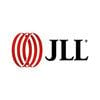What’s on the mind of investors and occupiers in 2023?
Doubling down of decarbonization efforts despite macroeconomic headwinds
It’s a testing time for commercial real estate as macro-economics, geopolitics and long-term structural shifts impact both investors and occupiers.
Inflationary pressure not seen since the early 1990s is a huge concern for all. But it’s the drive to net zero carbon that’s at the forefront of decision makers’ minds for the coming 12 months, according to a global JLL client survey. A substantial year-on-year increase in the number of clients who include sustainability as a top priority was recorded by the survey.
Looming deadlines, increased legislation and regulation – with the likes of New York implementing carbon taxes on buildings – are contributing to the sense of urgency among investors and occupiers, says Guy Grainger, Global Head of Sustainability Services & ESG at JLL.
As pressure from shareholders, employees and wider society grows, this decade is no longer about targets but about taking action to cut harmful emissions,
he says. Net zero buildings are now achieving record rents as occupiers increasingly look for spaces that reflect their sustainability commitments, so the economic case is established.
There’s concern, particularly among investors, around liquidity, brown discounts and access to finance, as well as concern about falling behind the curve
, Grainger adds.
With emissions from real estate at an all-time high, retrofitting buildings will be a critical next step.
Achieving decarbonization goals quickly and in a financially prudent way are the main objectives for companies in 2023 and beyond,
Grainger says. Companies now need to move from making commitments to showcasing their implementation.
The tech component
Sustainability efforts are not siloed, with the role technology can play on the road to net zero acknowledged as key by those surveyed by JLL. Technology has become a vital need for many of the survey’s 2,888 respondents.
More questions than ever are being asked about tech solutions that can support companies and improve efficiency,
says Stephanie Hyde, JLL chief executive for the UK.
That cuts across all areas of commercial real estate. But there’s certainly a deeper acknowledgement of tech as an enabling force to meet ESG and net zero carbon goals.
Improvements will be needed in the collecting and monitoring of data, as well as assessing, benchmarking, and reporting on the ESG credentials of real estate assets.
Demand is rising for tech and data solutions that switch the modus operandi from reactive to proactive,
Hyde says.
In fact, technology is one of the reasons why Australia’s real estate investment funds performed strongly in the annual Global Real Estate Sustainability Benchmark (GRESB).
If automating or digitizing tasks, processes and reporting means improved efficiency, better decision making and lowered risk, then there’s also evidence that occupiers see technology solutions as a way to optimize the way people work, with more clients keen to incorporate new tools.
How spaces are designed, used and managed is now being informed by people’s needs,
says Hyde. It’s clear that creating the best workplace experience for employees throughout their working day, is becoming a key theme for occupiers as new ways of working emerge.
Hyde says JLL’s survey has revealed a convergence of key issues facing investors and occupiers.
All the issues our survey raised are ultimately interlinked. There’s no getting away from the fact that sustainability objectives align with cost-saving efforts, which, in turn, are connected to the pivotal role tech tools can play on both those fronts,
she says.
Equally, with more companies voicing concerns for their people, there’s a direct link between a greener, healthier, and more efficiently managed building and a happier workforce. And being on the front foot will be critical.
About JLL
For over 200 years, JLL (NYSE: JLL), a leading global commercial real estate and investment management company, has helped clients buy, build, occupy, manage and invest in a variety of commercial, industrial, hotel, residential and retail properties. A Fortune 500® company with annual revenue of $20.8 billion and operations in over 80 countries around the world, our more than 111,000 employees bring the power of a global platform combined with local expertise. Driven by our purpose to shape the future of real estate for a better world, we help our clients, people and communities SEE A BRIGHTER WAYSM. JLL is the brand name, and a registered trademark, of Jones Lang LaSalle Incorporated. For further information, visit jll.com.
